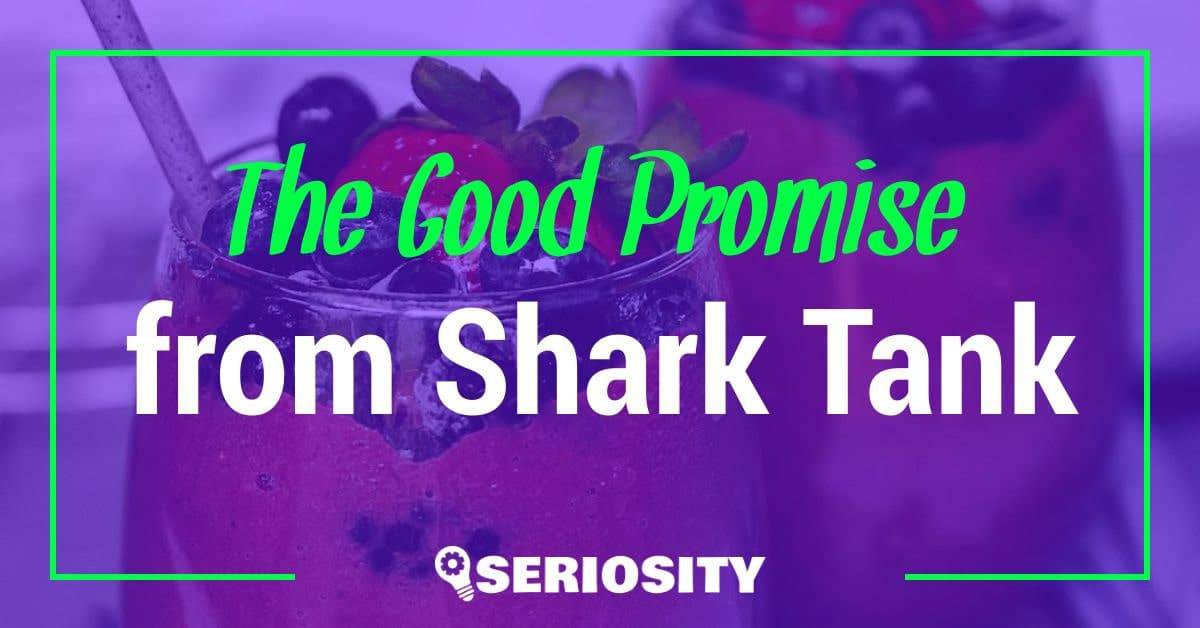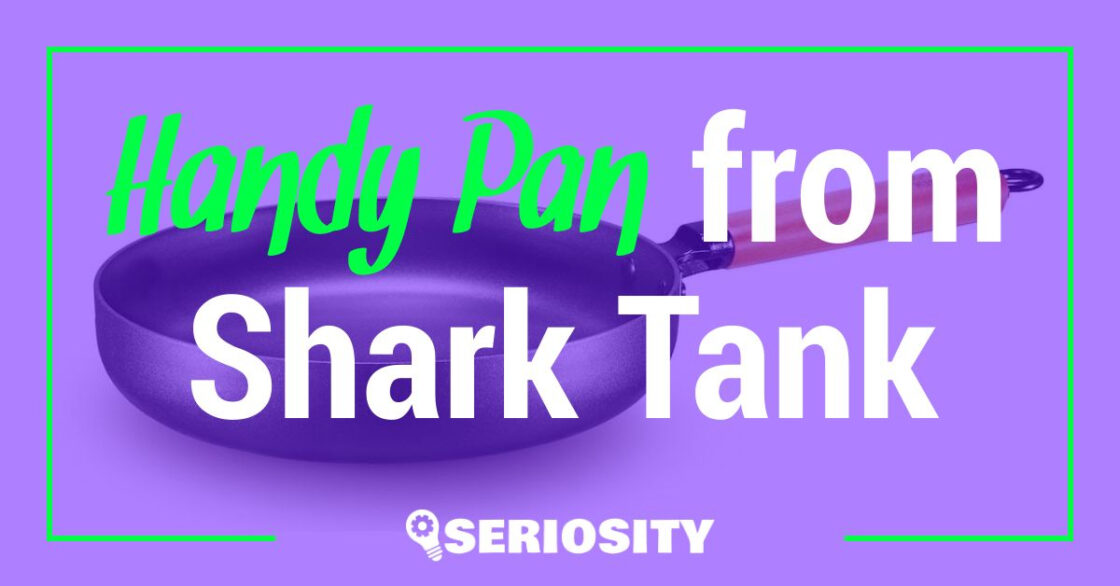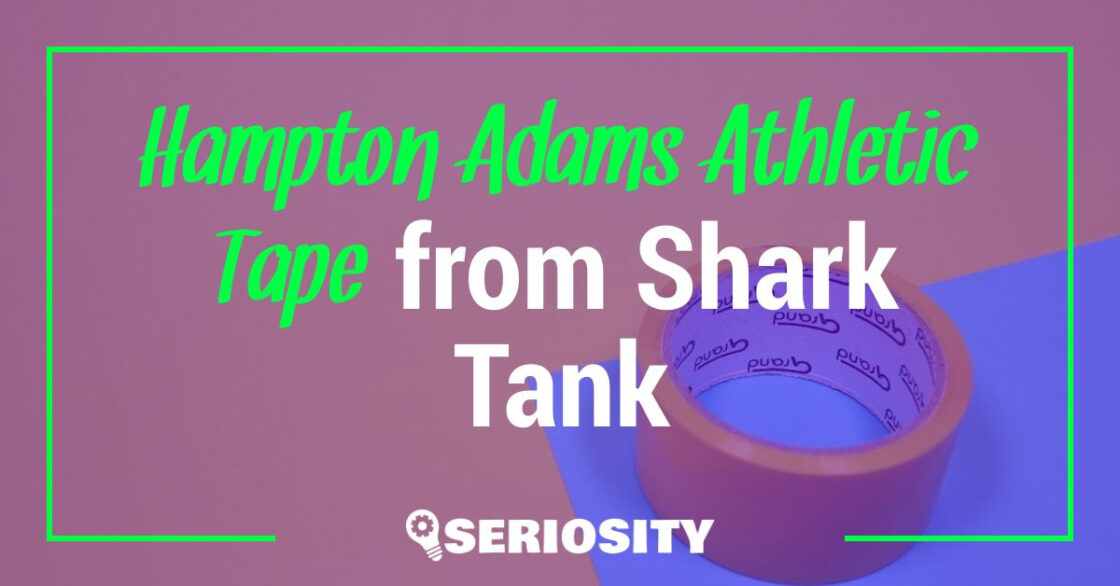Ever since Shark Tank started, there have been several different views about the various kinds of products and businesses that entrepreneurs come up with; but there hasn’t been anything like The Good Promise’s pitch on the show.
What is The Good Promise?
Back in 2016, mother-daughter duo Martha and Karen had established The Good Promise company, which was a line of healthy pasta sauces. Their company was doing moderately well on its own and even had over 400 Walmart outlets distributing their products.
While they were on the road all around Texas to market their brand in different Walmart locations, they realized the lack of healthy, nutritious food options in convenience stores, and smoothies or healthy beverages were just too expensive or too sugary, which is why they resorted to surviving on sunflower seeds and nuts.
This situation inspired them to come up with their own line of nutritious and healthy juice and smoothies that would also be affordable. After a two-year testing and development period, The Good Promise smoothies’ range was ultimately completed.
In 2014 Karen tried out for Shark Tank; however, she didn’t qualify. The producers of the show later contacted her in 2016, just before the launch of her smoothie line, and she was confident about making her first pitch on the show. However, things didn’t quite go the way she planned on the show or as a business as it eventually closed. The Good Promise can be added to the long list of Shark Tank failures.
The Good Promise on Shark Tank
Karen makes her appearance on the show seeking an investment of 1 million dollars for ownership of 20% of the company. She intended to go about things in a unique manner.
Instead of jumping right into her presentation, Karen passed out samples and urged the sharks to experience and taste her smoothies as though they were wine. Since Kevin O’Leary is an enthusiastic wine collector, with Kevin O’Leary Fine Wines being one of his ventures, he professionally reacted to Karen’s invitation.
With deep concentration, he proceeded to roll the smoothies on his tongue to collect all the flavors he was getting.
The sharks responded with a few positive comments, while Robert liked the taste of the carrot ginger smoothie and proceeded to try the Veggie Burst Smoothie. Kevin then came forward with what he thought of the smoothies and went on to say that his sophisticated palette recognized the flavor of industrial trash.
This was just the beginning of his negative comments about the smoothie line as another one tasted like soap, he said. He also said the smoothies’ taste was like that of snails along with their poisons!
Robert also agreed to Robert’s statements after trying the veggie rush smoothie. After the embarrassment, Lori stated that she thought that instead of consuming them alone, the smoothies were meant to be combined, to which Karen explained that two of the flavors were meant to be blended together. However, it was too late, and the inevitable had already happened.
The sharks sat there with unimpressed expressions and some with pained expressions, particularly Daymond, who was having a serious acid reflux reaction to the smoothies and couldn’t stop burping. Karen tried to control the damage, eager to move the topic along, but Daymond decided not to.
He continued the brutal investigation and questioned Karen about whether the smoothies were for a cleanse. Instead of waiting for her to respond, he proceeded to suggest things wouldn’t go very well if the situation went south. All the sharks burst into laughter while Karen, whose confident spirit was still intact, responded by informing them that the drinks were not intended for detox.
After so much information about Daymond’s weak digestive system, the sharks came back to work with Robert inquiring about Karen’s earnings thus far. She informed them that she made $260,000 from her initial sauce business during the first 1 ½ year of selling.
While the sauces’ sales seemed plausible enough, Karen revealed that the smoothies’ range had only recently been released and had received zero sales so far.
Robert asked Karen why she abandoned the pasta sauce business even though it was doing pretty good, to which she explained that although the sauces performed well, her profit margin was pretty low, at only 23%, and rising prices would make her less competitive in an already saturated market.
The pitch ended with none of the sharks interested in investing in The Good Promise smoothies, and a disappointed yet strong Karen left the show.
Our Review of The Good Promise
The idea of a completely natural, organic, healthy, and nutritious smoothie is a good one; however, it should taste good or at least edible for people to buy it. We think Karen should stick to her sauces business as they tasted better and were already a successful product.
Pros of The Good Promise
Since the Good Promise smoothies are natural and organic, they would provide a lot of health benefits. The other benefit as if they had come into the business, they would be available at convenience stores within everyone’s reach.
Cons of The Good Promise
The primary con of the good promise smoothies was the taste and the acid reflux.
Who Is The Good Promise For?
The Good Promise was for anyone who wanted to have a healthy and organic drink option instead of the conventional sugar-loaded options available in the market.
Are There Any Alternatives?
There are several healthy smoothies and nutritious beverages out there on the market; however, they might not be as affordable as The Good Promise, but they are good nonetheless.
Our Final Thoughts
Although the sales of the Good Promise smoothies did increase after the Shark Tank episode aired, things have taken a downward turn for the business. It seems that The Good Promise firm has suspended functioning.
Karen’s story is like a warning sign for entrepreneurs who have a desire to grow quickly, resulting in nothing but a busy schedule for gains that do not appear to be worthwhile. If you’d like to see what happened to other Shark Tank businesses check out our list of all Shark Tank products ever.





